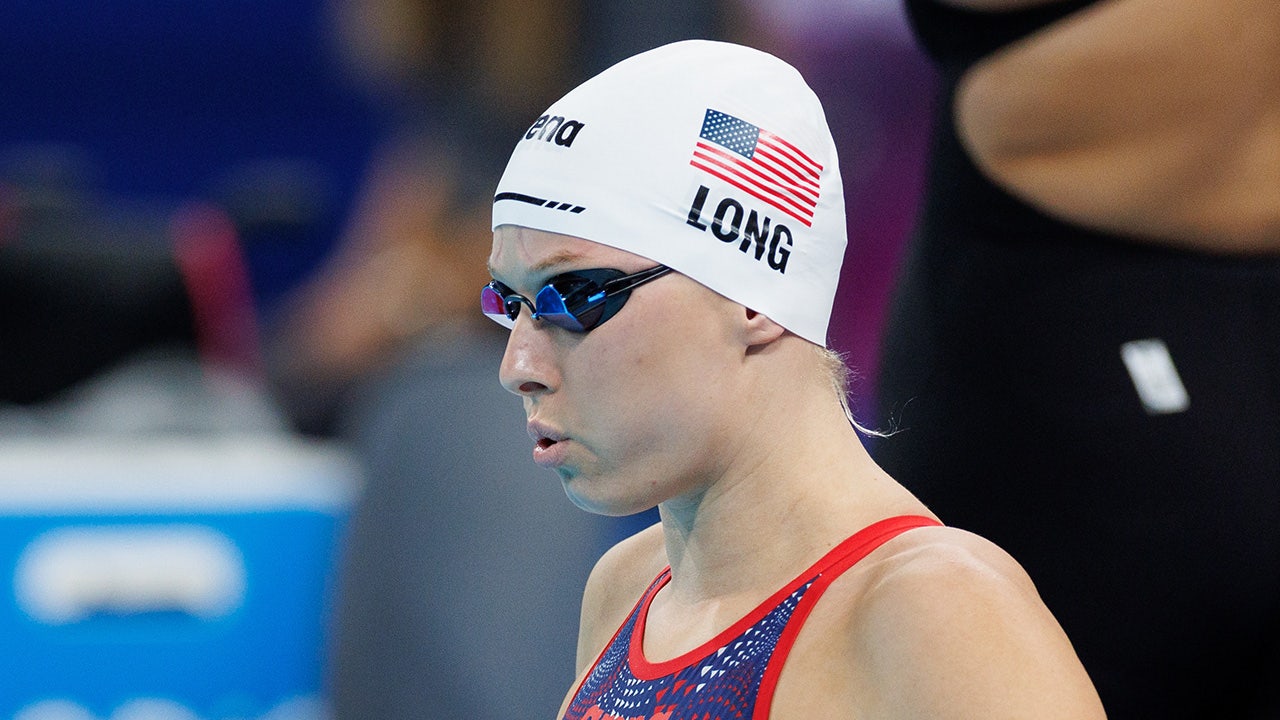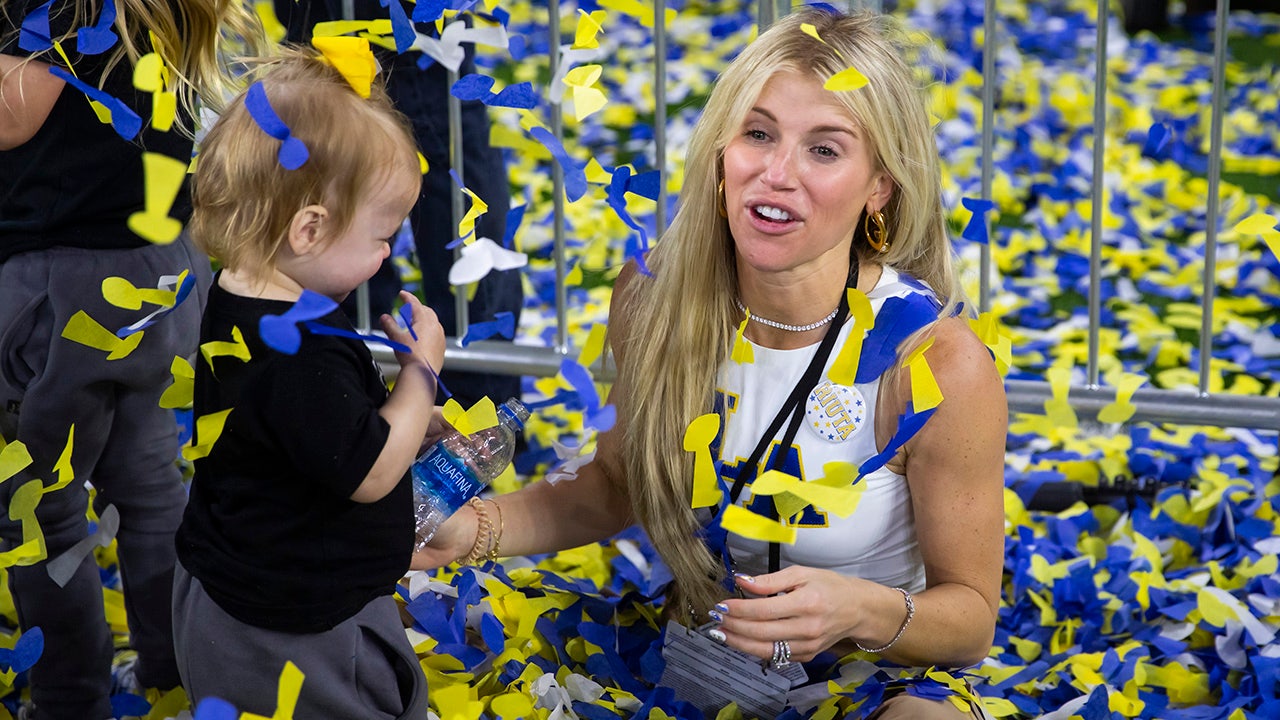Follow our Olympics coverage from the Paris Games.
The Olympic Games have had a rough decade.
For so many people over the past 10 years, those five multicolored rings that were long synonymous with the pinnacle of sport came to symbolize billions in wasteful spending, similar excesses of political and moral dissonance and a dismantling of the idea of the Games as pure competitions played for spirit and country.
Every cycle, the Games stumbled through another series of problems: Russia’s annexing of Crimea and its use of a systemic doping program during the Sochi Games in 2014; the threat of the Zika virus and unparalleled disorganization in Rio de Janeiro in 2016; the threat of nuclear war in South Korea in 2018; the depressing images of empty stadiums because of the coronavirus pandemic in Tokyo in 2021 and Beijing in 2022.

Empty stands due to the COVID-19 pandemic took the shine off the Tokyo Games, which were also delayed one year. (Tim Clayton / Corbis via Getty Images)
At those same Beijing Games, organizers and the International Olympic Committee were frequently asked about free speech and the treatment of ethnic minority groups like the Uyghurs, a situation the United Nations later described as crimes against humanity, easily flying in the face of the stated values of the Olympics.
With each dent, television audiences in the United States have turned away in significant numbers, threatening one of the largest single sources of Olympic revenue.
Now comes Paris. One of the world’s leading tourist destinations, a city that conjures levels of fascination and romanticism that few if any can top, will take on the task of restoring to the Olympic Games that mythical quality that for so long allowed it to exist as something so much more than sport.
That quality might have always been more myth than truth. Crass commercialism helped transform the Olympics into a multibillion-dollar behemoth from the quaint sports festival seen when Paris last hosted 100 years ago. Still, Paris has promised to bring back the luster.
“I have been an athlete, and I love the pressure,” Tony Estanguet, a three-time gold medalist in canoe and the president of the Paris 2024 Organizing Committee, said during a visit to New York last fall. “How can we move the line and be more creative and more innovative? The success of the Games relies on this ability to evolve and to make the brand, this event, more attractive. It’s a permanent fight.”
The IOC, the roughly 100-member organization based in Switzerland that owns the trademark to the famous rings and awards the Games to cities that compete to hoist them, has been losing that fight lately for several reasons. One has been a lack of geographic diversity, with the previous three Olympics in East Asia.

GO DEEPER
How NBC is broadcasting the most unique opening ceremony in Olympic history
To change that, the IOC in recent years altered its bidding rules to take a more active role in targeting cities rather than simply selecting from whichever candidates offer themselves up. After Paris, the Olympics will head to northern Italy; Los Angeles; the French Alps; Brisbane, Australia; and Salt Lake City. Organizers hope that will help revive lagging interest in Western Europe and the Americas.
“No question in my mind, moving the Games to such an iconic European city like Paris, plus having fans and partners back in person, will be such a needed and welcomed lift,” said Michael Lynch, a leading international sports consultant and the former director of sports marketing for Visa, one of the main sponsors of the Olympics.
For their part, the French have taken up the fight in the most French way: by showing off their beautiful capital. Estanguet and his team decided years ago when they first bid for these Games to marry sports and culture as never before by placing the Games at some of the most famous and recognizable locations in and around the French capital.
The move is a stark turn away from the plan most cities have followed when they have hosted recent Olympics. That playbook generally involved finding a massive, undeveloped or long-since abandoned tract and building a huge park filled with sports facilities, usually somewhere outside the center of the city, and putting a big fence around it.
Paris did a bit of that with its Olympic Village, where athletes will live, in St. Denis, north of the city center and not far from the Stade de France, where track and field will take place. The aquatics center — host to diving, water polo and artistic swimming — is near there, too.
Just about everything else is stuffed into or just beyond the peripheral road that encircles the main area of Paris, which can be traversed on foot with a comfortable pair of shoes in an afternoon.
As the sun sets beyond the city Friday evening, the opening ceremony will unfold along the Seine, with some 10,000 athletes floating down the river on boats rather than marching into an enclosed, remote stadium. Beach volleyball will take place at the Eiffel Tower. Fencing will take place at the Grand Palais. Breaking, skateboarding and 3×3 basketball will happen near Place de la Concorde. The equestrian competition will happen at Versailles.

Beach volleyball in the shadow of the Eiffel Tower figures to be one of the visual spectacles of the Paris Olympics. (Tim Clayton / Corbis via Getty Images)
In addition to creating a two-week commercial for Paris, organizers want to reimagine what the Olympics can be by bringing them closer to population centers rather than siphoning them away in a remote area. It’s especially poignant after Tokyo and Beijing, two consecutive versions of the Olympics that were siloed as never before, with COVID-19 prompting organizers to prohibit paid spectators.
The fallout was ugly, especially in the United States, where the size of the television audience dwindled for NBC, whose media rights fee accounts for about 50 percent of Olympic television revenue. Coverage from Beijing in 2022 dropped 40 percent from South Korea in 2018, which was down from Sochi in 2014. Coverage from Tokyo in 2021 was down 42 percent from Rio in 2016.
Michael Payne, the former director of marketing for the IOC, said audiences have grown elsewhere, especially for the host countries in Asia, but after a few “challenging Games,” in his words, Paris brings the chance for a “reboot.”
“Would be good to get back to normal,” Payne said with Olympian understatement.
There is no guarantee for that. However wondrous and new Friday’s opening ceremony might appear, clouds are hanging over the Games, as there always are in this era.
Russia, long one of the most important countries in the Olympic movement, remains a pariah nation because of its history of state-sponsored doping and its invasion of Ukraine. Athletes from Russia and Belarus will compete as part of a neutral group of athletes with no national affiliation.
Israel’s war in Gaza, a significant response to deadly attacks by Hamas last October, has sparked calls for athletes from Israel to be banned and generated demonstrations at Israel’s first men’s soccer game Wednesday.
The threat of a terrorist attack looms, especially when so many events will take place in the center of Paris.
The worldwide anti-doping system, which relies on independent national organizations to test their athletes, has broken down. COVID-19 rates are rising. With people from all over the world converging on Paris, the city might become the ultimate petri dish, especially the Olympic Village, where the athletes will live and eat and socialize for the next 17 days.
David Wallechinsky, a leading Olympic historian, said he walked 10 miles through Paris this week searching for a pre-Games buzz. He couldn’t find it. Still, he knows everything changes once the competitions begin, the stadiums fill and the host country wins its first gold medal.
Wallechinsky also knows one thing for certain.
“It’ll look good,” he said of the Paris Games.
Estanguet wants more than that. He knows the world will be watching.
“The pressure is positive to me,” he said. “We have to succeed.”

Equestrian events will take place in front of the Palace of Versailles, one of the many marriages of sport and iconic venue at the Games. (Pierre-Philippe Marcou / AFP via Getty Images)
(Illustration: Dan Goldfarb / The Athletic; photo of the Eiffel Tower: Maja Hitij / Getty Images)






